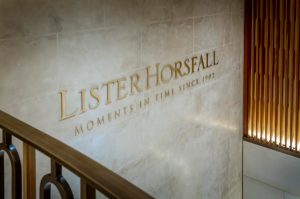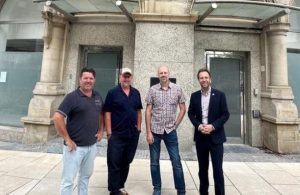Bleak times ahead warns top economist

THE UK economy is about to enter its weakest period of growth since the Exchange Rate Mechanism crisis of 15 years ago and there is a risk that the economy will slip in into a full-blown recession.
This is the bleak warning from Roger Bootle, economic adviser to Deloitte, in the firm's latest Economic Review.
He believes the increasing vulnerability of the housing market is at the heart of the downturn. Admittedly, the UK economy escaped a major economic downturn in 2004/05, when the housing market experienced its first ever “soft” landing. But the “big one” might now finally be upon us.

“What's more, a prolonged economic downturn may force employers to wield the axe more sharply than in briefer downturns, when they were more prepared to hoard labour. Slower employment growth – if not outright falls – together with sluggish income growth could undermine the housing market yet further and significantly reduce the ability of household spending to propel the economy forward. Household spending, which has been the engine of the economy for much of the last decade, is likely to falter, growing by less than 2% both this year and next.”
Mr Bootle goes on: “And unlike in 2005, the economy will not be bailed out by a strong world economy. The US economy has entered a period of weakness as the housing market undergoes a substantial correction and US consumers – for so long the driver of global economic growth – finally rein in their spending. We think that US economic growth will slow to zero in the first half of this year, with a good chance of an outright recession. Even assuming a modest recovery in the second half, helped by much lower interest rates, we expect the US economy to grow by just 1.3% in 2008 as a whole and by a similarly below-par 2.0% in 2009.
“Admittedly, much has been made of the potentially offsetting impact of the strength of the UK's biggest export market, Europe, and the growing importance of other rapidly expanding destinations such as China and India. But it seems very unlikely that these other areas will fully compensate for the impact of the slowdown in the US.
“Indeed, euro-zone growth is still likely to slow significantly this year. And although economies such as China and India will continue to expand at very robust rates, between them they buy less than 5% of total UK exports.
“Accordingly, net trade looks set to have a less supportive effect on the economy over the next few years than it did in 2005, when it made a positive contribution to GDP growth and helped to offset the negative impact of the housing slowdown. We expect GDP growth to slow sharply from 3.2% last year to around 2% this year and to below 2 per cent in 2009. This would be the weakest performance of the UK economy over two years since 1991 and 1992.”
On a more positive note, Mr Bootle says that one important factor which should help to prevent a full-blown recession is the scope for the policymakers to respond. Despite lingering concerns over the inflation outlook, the Monetary Policy Committee should be free to cut interest rates sharply.
“We see rates eventually falling to just 4% in 2009, which should push the pound lower,” he adds. “Further ahead, a period of re-adjustment in the economy, incorporating falls in house prices and the exchange rate, might ultimately pave the way for a renewed period of strong and better balanced growth such as that which followed the pound's exit from the ERM in the early 1990s. But there is a difficult period to get through first and, unlike the last slowdown, that period is likely to last rather longer than a year.”







